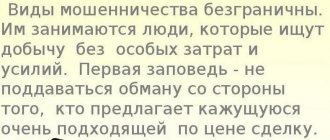1. Production, acquisition, storage, transportation for the purposes of use or sale, as well as the sale of counterfeit payment cards, orders for the transfer of funds, documents or means of payment (except for the cases provided for in Article 186 of this Code), as well as electronic means, electronic information carriers, technical devices, computer programs intended for the unlawful reception, issuance, transfer of funds -
shall be punishable by forced labor for a term of up to five years, or by imprisonment for a term of up to six years, with a fine in the amount of one hundred thousand to three hundred thousand rubles, or in the amount of the wages or other income of the convicted person for a period of one to two years.
2. The same acts committed by an organized group, -
shall be punishable by forced labor for a term of up to five years, or imprisonment for a term of up to seven years, with or without a fine in the amount of up to one million rubles or in the amount of the wages or other income of the convicted person for a period of up to five years.
- Article 186. Production, storage, transportation or sale of counterfeit money or securities
- Article 188. Repealed
Commentary to Art. 187 of the Criminal Code of the Russian Federation
The object of this crime is the established procedure for the issuance and circulation of credit or payment cards, other payment documents that are not securities.
The subject of the crime is counterfeit credit or payment cards, other payment documents that are not securities.
In accordance with clause 1.5 of the Regulations of the Central Bank of the Russian Federation dated December 24, 2004 N 266-P “On the issuance of bank cards and on transactions performed using payment cards,” credit institutions have the right to issue bank cards (including payment and credit):
———————————
Bulletin of the Bank of Russia. 2005. N 17.
a) a payment (debit) card is intended for transactions by its holder within the limits of the amount of funds (spending limit) established by the issuing credit institution, settlements for which are carried out at the expense of the client’s funds in his bank account or a loan provided by the credit institution - by the issuer to the client in accordance with the bank account agreement in the event of insufficient or absence of funds in the bank account (overdraft);
b) a credit card is intended for its holder to carry out transactions, settlements for which are carried out at the expense of funds provided by the issuing credit institution to the client within the established limit in accordance with the terms of the loan agreement.
For the concept and types of securities, see the commentary to Art. 186 of the Criminal Code of the Russian Federation. Other payment documents that are not securities are documents on the basis of which non-cash payments (settlements) are made between individuals and legal entities, for example: payment orders (Article 863 of the Civil Code of the Russian Federation); collection orders (Article 874 of the Civil Code of the Russian Federation); letter of credit (867 Civil Code of the Russian Federation); payment order and payment request (clauses 3.7 and 9.1 of the Regulations of the Central Bank of the Russian Federation of October 3, 2002 N 2-P “On non-cash payments in the Russian Federation”).
———————————
Bulletin of the Bank of Russia. 2002. N 74.
Checks, travel tickets or receipts for payment are not the subject of this crime.
The objective side of the crime is expressed in actions - the production or sale of counterfeit credit or payment cards, other payment documents that are not securities.
The production of counterfeit credit or payment cards or other payment documents that are not securities means their partial or complete forgery (for example, changing details: account number, owner’s signature, amount of money).
Sales is any form of paid or gratuitous transfer of documents to third parties (donation, exchange, sale, etc.).
Using counterfeit credit or debit cards as a means of payment or obtaining cash from an ATM does not constitute sales.
Some qualification issues related to the production, sale and use of counterfeit credit or payment cards, other payment documents that are not securities, are explained in Resolution of the Plenum of the Supreme Court of the Russian Federation dated December 27, 2007 N 51 “On judicial practice in cases of fraud, appropriation and embezzlement."
———————————
Bulletin of the Supreme Court of the Russian Federation. 2008. N 2. P. 8.
In accordance with paragraph 13 of this Resolution, theft of other people's funds through the use of a previously stolen or counterfeit credit (payment) card, if cash is issued through an ATM without the participation of an authorized employee of a credit institution, should be qualified under the relevant part of Art. 158 of the Criminal Code of the Russian Federation.
The theft of other people's funds in bank accounts through the use of a stolen or counterfeit credit or payment card should be classified as fraud only in cases where a person, through deception or abuse of trust, misled an authorized employee of a credit, trade or service organization (for example, in cases where, using a bank card to pay for goods or services in a shopping or service center, a person signs the purchase receipt instead of the legal owner of the card or presents a fake passport in his name).
If a person produces counterfeit bank payment or credit cards for use in order for the same person to commit crimes under Part 3 or 4 of Art. 159 of the Criminal Code of the Russian Federation, the act should be qualified as preparation for fraud.
In situations where a person used a stolen or counterfeit credit or payment card, but due to circumstances beyond his control, he was unable to convert other people’s funds to his own benefit or to the benefit of others, the act, depending on the method of theft, should be qualified as attempted theft or fraud under Part 3 of Art. 30 of the Criminal Code of the Russian Federation and the corresponding part of Art. Art. 158 or 159 of the Criminal Code of the Russian Federation.
The sale of counterfeit credit or payment cards, as well as other payment documents that are not securities, obviously unsuitable for use, constitutes fraud and is subject to qualification under the relevant part of Art. 159 of the Criminal Code of the Russian Federation. If a person has produced for the purpose of selling counterfeit credit or payment cards, as well as other payment documents that are not securities, which are obviously unsuitable for use, but due to circumstances beyond his control he was unable to sell them, the act must be qualified in accordance with Part. 1 tbsp. 30 of the Criminal Code of the Russian Federation as preparation for fraud, if the circumstances of the case indicate that these actions were aimed at committing crimes under Part 3 or 4 of Art. 159 of the Criminal Code of the Russian Federation.
The production of counterfeit credit or payment cards or other payment documents that are not securities is a committed crime if at least one such document is produced for the purpose of subsequent sale, regardless of whether it was successfully sold.
The sale is completed if the person has alienated at least one counterfeit document. The corpus delicti is formal.
The subjective side is characterized by guilt in the form of direct intent. The person is aware that he is manufacturing for the purpose of marketing or selling counterfeit credit or payment cards, other payment documents that are not securities, and wishes to do so.
A mandatory feature of an action is its purpose. The manufacture of items of this crime without the purpose of sale is not criminally punishable.
The general subject of the crime is a sane individual who has reached the age of sixteen.
The qualifying feature is the commission of an act by an organized group (see Part 3 of Article 35 of the Criminal Code of the Russian Federation and the commentary thereto).
The acquittal of a citizen who paid for purchases with someone else's bank card survives appeal
On August 13, the judicial panel for criminal cases of the Kostroma Regional Court upheld the acquittal of a citizen previously accused of theft for making purchases using someone else’s bank card (AG has the appeal ruling).
Facts of the case
In December 2021, Alexander Lebedev lost his bank card and discovered the loss only when unknown persons began to pay for purchases with it. The money was written off several times, and each time the transaction amount did not exceed 1 thousand rubles. Then the card owner managed to block it and stop the unauthorized debiting of funds.
Subsequently, Alexey Pestov voluntarily came to the police, where he wrote a confession. He admitted that he received a bank card in the name of Lebedev from his friend Smirnov. With her help, he bought groceries worth 745 rubles in the store. The second time, the amount of purchases using someone else’s bank card was 288 rubles, and the third time – 306 rubles. According to the citizen, after purchasing food, he returned the card to Smirnov. Then another person tried to buy goods for 900 rubles, but the card was blocked.
Alexey Pestov compensated the harm caused to the victim in full. The court chose a preventive measure for him in the form of a written undertaking not to leave the place and proper behavior. The actions of the accused were qualified by the investigation under paragraph “g” of Part 3 of Art. 158 (theft committed from a bank account, as well as in relation to electronic funds, in the absence of signs of a crime provided for in Article 159.3 of this Code) of the Criminal Code of the Russian Federation. Similar charges were brought against Smirnov in a separate criminal case.
Entry into the case of a defense attorney by appointment
Alexey Pestov was defended by the lawyer of the Kostroma Region Administration, Alexey Egorov. In a commentary to AG, he said that he entered into the process at the preliminary investigation stage. “On December 13, 2021, in accordance with the duty schedule, I was invited by the investigative authorities to protect the suspect in accordance with Art. 51 Code of Criminal Procedure of the Russian Federation. By the time I arrived at the investigative department, my client was already with the investigator. I was presented for review with the principal's explanation and confession, in which he outlined his actions in detail. During the conversation, the principal confirmed what he stated in the documents,” the lawyer noted.
The defender explained that, according to Alexey Pestov, the latter made several purchases in stores using someone else’s bank card in a contactless manner without entering a PIN code. “Each purchase was less than 1 thousand rubles. The investigator, in turn, explained that a criminal case had been opened under paragraph “g” of Part 3 of Art. 158 of the Criminal Code of the Russian Federation in relation to unidentified persons,” the lawyer said.
According to Alexey Egorov, he explained to the client that there is a possibility of changing the classification of his actions from a criminal offense to an administrative offense. “Formally, his actions fell under a different qualification of the Criminal Code of the Russian Federation, namely Part 1 of Art. 159.3 of the Criminal Code of the Russian Federation (fraud using electronic means of payment). But due to the fact that the total amount of purchases was less than 2.5 thousand rubles, his actions constitute an administrative offense under Part 2 of Art. 7.27 of the Code of Administrative Offenses of the Russian Federation (petty theft),” the lawyer explained.
“Next, the principal gave evidence in which he outlined in detail the entire procedure for his actions, paying special attention to the fact that in the store no one asked him about the ownership of the bank card, and he did not inform anyone that the card did not belong to him,” added Alexey Egorov.
The lawyer noted that the investigation opened a criminal case for a serious crime, although the disposition of paragraph “g” of Part 3 of Art. 158 of the Criminal Code of the Russian Federation directly states that an important condition for initiating such a criminal case is met (the absence of signs of a crime provided for in Article 159.3 of the Criminal Code of the Russian Federation). “It would be naive to think that the investigation was simply mistaken or in a hurry. It was obvious that at the investigation stage there could be no talk of any termination, and the investigation was confident that the qualifications were correct. The supervising prosecutor signed the indictment specifically for the serious offense, which indicates the consistency of the position of the investigative authorities and the prosecutor’s office on this issue,” the defense lawyer said.
“My client and I decided not to go against the grain and present our position in court. For this reason, we have developed a position in which he fully agrees with the accusation, gives the testimony necessary for subsequent reclassification and compensates the harm caused to the victim. Next, the defense, without interfering with the investigation, goes to court for consideration on the merits, where it claims incorrect qualifications. In turn, the principal will explain that he recognizes the factual circumstances of the case in full, and leaves the question of qualification of his actions to the lawyer, while fully relying on the fairness of the court,” explained Alexey Egorov
The lawyer dissuaded the client from considering the case in a special manner
“On the day of familiarization with the case, when drawing up a protocol in accordance with Art. 217 of the Code of Criminal Procedure of the Russian Federation, the principal suddenly expressed a desire to consider the case in a special manner. Most likely, he did this because his friend, who also managed to use someone else’s card, announced that the criminal case was being examined in a special manner. I explained all the consequences of such a decision, that there is a high probability of conviction under the imputed article. In addition, I also pointed out the futility of considering a criminal case in a special manner. In the presence of mitigating circumstances (confession, repentance, compensation for harm and the absence of aggravating circumstances), the punishment will in any case be less than two-thirds of the most severe punishment, and this is with the worst outcome. In his case, the maximum is punishment using the provisions of Art. 73 of the Criminal Code of the Russian Federation,” said Alexey Egorov.
According to the lawyer, after signing the protocol, he convinced his client that at the court hearing the defense would claim an incorrect legal assessment of his actions.
Consideration of the case in the court of first instance
The criminal case against Alexey Pestov was considered in the Dimitrovsky District Court of Kostroma. During the trial, the defendant fully admitted his guilt in the act accused of him. The state prosecution, in turn, supported the charges brought against him.
“During the debate between the parties, the state prosecutor asked to leave the qualifications the same, but proposed to reduce the category of the crime, impose a fine and release from punishment. Most likely, this was done to prevent the convicted person from appealing the conviction, since there would not have been any serious consequences for him. Thus, the unfounded initiation of a criminal case under a serious article would be hidden. Plus, the principal would have lost the right to rehabilitation,” noted Alexey Egorov.
Judicial practice under Article 187 of the Criminal Code of the Russian Federation
The appeal ruling of the Judicial Collegium for Criminal Cases of the Supreme Court of the Russian Federation dated August 7, 2018 N 31-APU18-8
rejected the complaint against the decision of the Deputy Prosecutor General of the Russian Federation N.A. Vinnichenko. dated May 25, 2021 on his extradition to face criminal charges for robbery under Part 4 of Art. 187 of the Criminal Code of Ukraine. Having heard the report of judge A.N. Klimov, the explanations of the applicant D.V. Darmokrik. using a video conferencing system, lawyer E.M. Shevchenko, who supported the arguments of the appeal, asking the court decision to be canceled, the opinion of prosecutor M.V. Pirogov, who believed the decision to be left unchanged, Judicial Collegium
Cassation ruling of the Judicial Collegium for Criminal Cases of the Supreme Court of the Russian Federation dated October 18, 2018 N 127-UD18-16
By the verdict of the Judicial Chamber for Criminal Cases of the Court of Appeal of the Autonomous Republic of Crimea dated August 4, 2005, Asanov was convicted under clause 6, 13, part 2, art. 115 of the Criminal Code of Ukraine to 15 years in prison with confiscation of property, under Part 4 of Art. 187 of the Criminal Code of Ukraine to 14 years in prison with confiscation of property, on the basis of Art. of the Criminal Code of Ukraine for a combination of crimes by absorbing a less severe punishment with a more severe one - to 15 years of imprisonment with confiscation of property, in accordance with Art. The Criminal Code of the Russian Federation, together with the sentence of December 17, 1997 - to 18 years in prison with confiscation of property.
Appeal ruling of the Judicial Collegium for Criminal Cases of the Supreme Court of the Russian Federation dated 09/05/2018 N 18-APU18-14
law enforcement agencies of Ukraine for criminal prosecution under Part 3 of Art. 187 of the Criminal Code of Ukraine. Having heard the report of Judge Vedernikova O.N., the speeches of Negmatzyanov V.N. and lawyer E.M. Shevchenko, who supported the arguments of the complaint, the opinion of the prosecutor of the General Prosecutor's Office of the Russian Federation S.V. Kuznetsov. on leaving the decision unchanged, Judicial Collegium
Resolution of the Presidium of the Supreme Court of the Russian Federation dated September 22, 2021 N 88P21
Skorovarov Anatoly Ivanovich, ... was detained on April 28, 2017 in accordance with Art. Art. 91, 92 of the Code of Criminal Procedure of the Russian Federation on suspicion of committing crimes provided for in clauses “a, b”, part 2 of Art. 172, part 2 art. 187 of the Criminal Code of the Russian Federation.
Resolution of the Presidium of the Supreme Court of the Russian Federation dated September 22, 2021 N 89P21
Lyshchik Andrey Alekseevich, ..., was detained on May 29, 2021 in accordance with Art. Art. 91, 92 of the Code of Criminal Procedure of the Russian Federation on suspicion of committing crimes under Part 1 of Art. 187, part 4 art. 159 of the Criminal Code of the Russian Federation.
Resolution of the Presidium of the Supreme Court of the Russian Federation dated October 6, 2021 N 18-P21
Vitaly Vladimirovich Umerenkov, ..., was detained on November 17, 2015 on suspicion of committing crimes under paragraph “b” of Part 2 of Art. 172, part 1 art. 187 of the Criminal Code of the Russian Federation. By the decision of the judge of the Leninsky District Court of Rostov-on-Don dated November 19, 2015, consideration of the issue of choosing a preventive measure in the form of detention for Umerenkova V.V. postponed, the period of his detention was extended by 72 hours, that is, until 20:00 on November 22, 2015.
Resolution of the Presidium of the Supreme Court of the Russian Federation dated October 6, 2021 N 87-P21
Gamidov Shamil Magomedovich, ... was detained on June 3, 2021 in accordance with Art. Art. 91, 92 of the Code of Criminal Procedure of the Russian Federation on suspicion of committing crimes under Part 2 of Art. 187, paragraph “a”, part 2, art. 172 of the Criminal Code of the Russian Federation.






